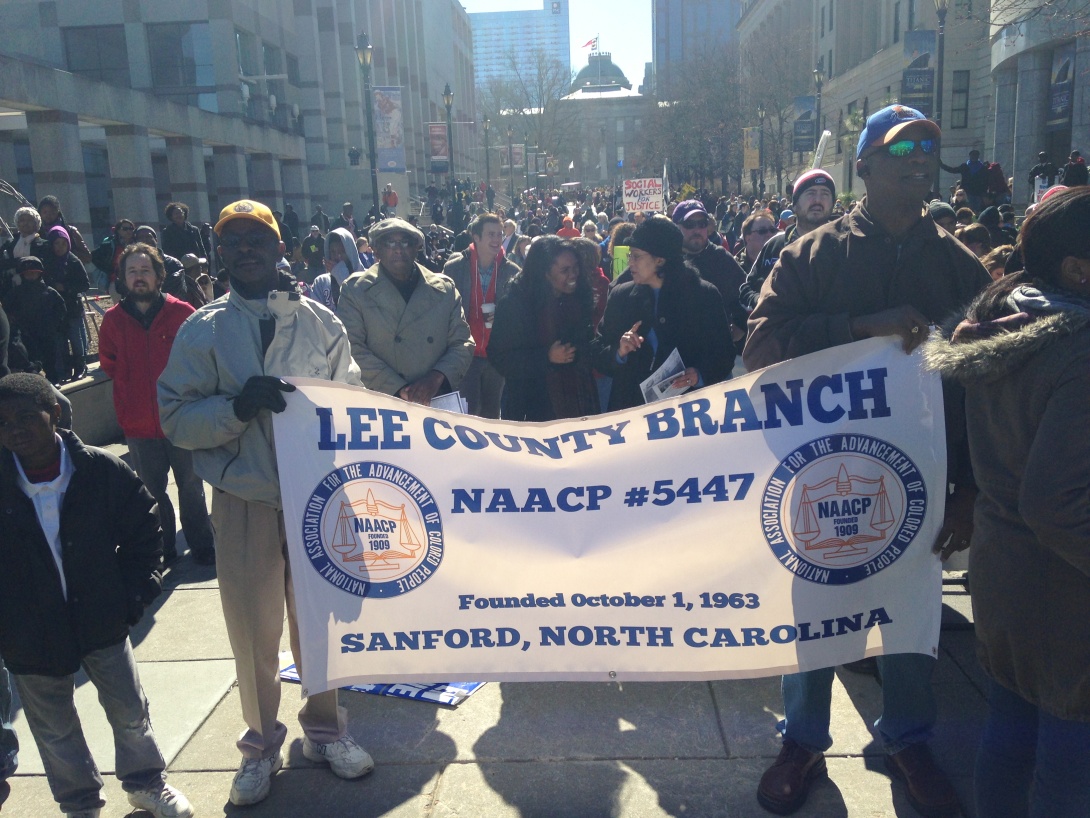NAACP appealing North Carolina redistricting ruling

After a three-judge panel in North Carolina upheld a Republican-drawn redistricting plan earlier this month that civil rights groups call an illegal gerrymander, the NAACP has decided to appeal the case to the state supreme court.
Political district lines drawn in 2011 by Republican lawmakers stacked too many African Americans into too few legislative and congressional districts, according to plaintiffs in the combined cases Dickson v. Rucho and NC NAACP v. North Carolina. The Republican lawmakers named as defendants in those cases have said that the lines they drew were based on political partisanship and not on race. They have also argued that the Voting Rights Act compels them to create what’s called “majority-minority” districts -- where the voting population contains enough people of color that they may elect a candidate of their choice. The state Superior Court panel agreed with them in its July 8 ruling.
But that court misunderstood the Voting Rights Act's instructions on majority-minority districts, said Irving Joyner, a law professor at North Carolina Central University who's involved in the case.
"[The VRA] does not compel the drawing of majority-minority districts," said Joyner in an interview. "It only says that you can't draw lines that would dilute the black vote."
By packing 85 percent of African-American voters in North Carolina into a few districts, the line drawers have "violated every acceptable principle of redistricting that the U.S. Supreme Court has ever recognized," Joyner said.
He pointed to Shaw v. Reno, the 1990 census-based racial gerrymandering case in North Carolina that made it to the U. S. Supreme Court, which ruled that if a redistricting map is "so bizarre on its face that it is 'unexplainable on grounds other than race'" it must be held to a strict standard of scrutiny.
Republicans who drew the lines were "using political party labels now as a proxy for race," Joyner said, while "manipulating the meaning of the Voting Rights Act."
"According to precedent in the U.S. Supreme Court, they have been clear that majority-minority districts are not required unless a stringent set of factors have been satisfied," said Clare Barnett, staff attorney for the Southern Coalition for Social Justice, which is involved in the redistricting case. "There has been no need of those types of district in North Carolina. This is an illegitimate use of race, and it's one the Supreme Court has rejected in the past."
The Voting Rights Act can and has been used to create majority-minority districts in other states in previous years, but mostly in places where voters of color are in such low numbers that they have no chance of electing candidates of their own choice or influencing policy creation. But in North Carolina's case, districts had been drawn where multiracial voter bases harmoniously voted for candidates of their choice. Communities of interest were grouped naturally along urban and rural lines. Under the new lines, though, black voters from rural areas were "unnecessarily" packed in with black urban voters, said Joyner, leaving the remaining areas “bleached” white.
While the Department of Justice is intervening in Texas, suing to bring the state back under Voting Rights Act coverage due to its racially discriminatory redistricting law, the same is likely not to happen in North Carolina -- though a former Justice Department official says North Carolina could get bailed in for passing a racially discriminatory voter ID law. As for North Carolina's redistricting law, the Justice Department precleared it under the Voting Rights Act. Joyner described that as "a political decision."
"We disagreed with that and protested vigorously against the Holder administration about that," said Joyner. "They did not give these districts the same kind of attention that they were paying in Texas."
This case may have a difficult time before the Supreme Court of North Carolina, which is dominated by justices who lean conservative and Republican. Joyner is already anticipating taking the case to the U.S. Supreme Court, where plaintiffs believe they stand a better chance. That could be a while from now, though. According to Barnett, it could take as long as a year for this case to finally get heard and ruled upon by the state supreme court.
Said Barnett, "We don't want to count [the state supreme court] out, but we think the U. S. Supreme Court would be very interested in our arguments, which are consistent with what the Supreme Court has said about racial gerrymandering in the past."
